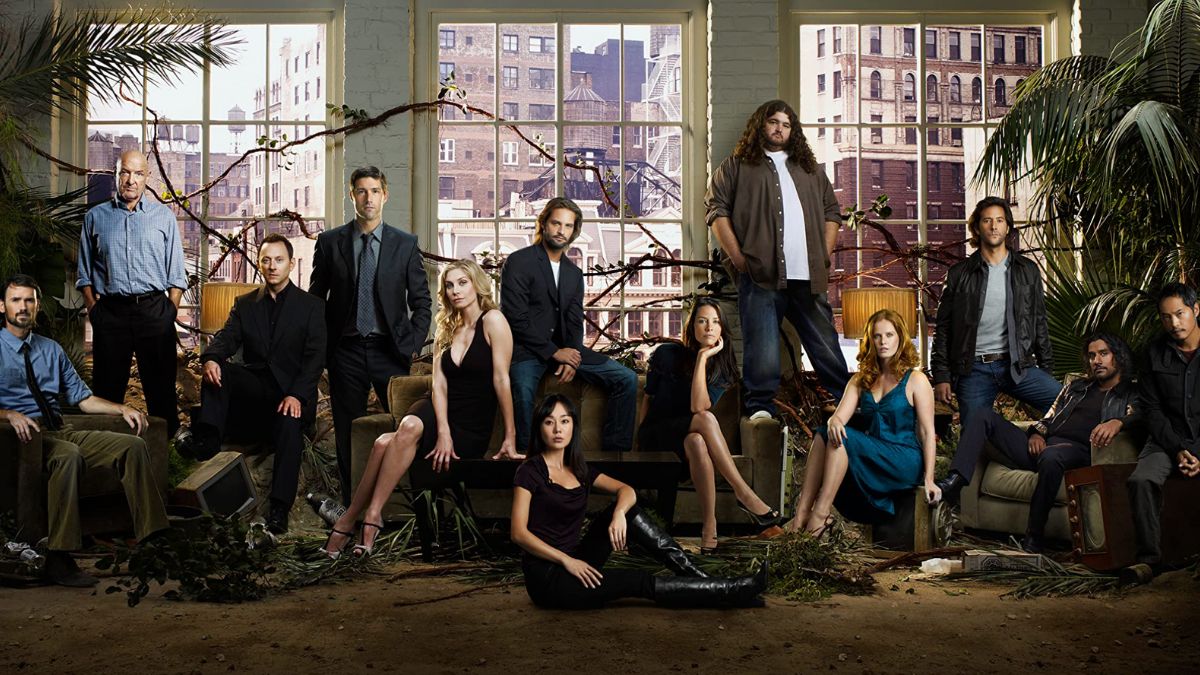Content advisory: This article contains mentions of racism and physical violence; please take care while reading.
From 2004-2010, one of the icons of the pop culture industry was the mysterious drama that captivated audiences worldwide — Lost. The series followed a group of survivors after Oceanic Airlines Flight 815 crashed on a remote island. While that scenario in itself was stressful enough, what happened next, as the strangers-turned-trauma-bonded partners explored their new surroundings, went from strange to unfathomable.
“Strange to unfathomable” can also sum up some of the experiences that took place in the Lost writers’ room, as well, in terms of out-of-this-world storylines and the process that went into crafting them. Lost was a groundbreaking, one-of-a-kind series crafted in a once-in-a-lifetime kind of environment. But behind the scenes, it was less than shiny and sparkly. In fact, the writing process apparently became profoundly unsettling in later seasons.
In a recent chat with Vanity Fair, Monica Owusu-Breen, a Black writer who worked on season 3 of Lost, brought up circumstances in which a racist tone didn’t just enter the discussion, but drove it forward. Owusu-Breen’s writing partner, Alison Schapker, was even told that the problem was her lack of humor around a sensitive subject.
“My writing partner was told, ‘The problem is, you don’t think racism is funny.'”
Owusu-Breen continued by saying that there were times that she had to physically remove herself from writers’ rooms until the conversations changed in direction and content.
“There was so much sh*t, and so much racist sh*t, and then laughter. It was ugly. I was like, ‘I don’t know if they’re perceiving this as a joke or if they mean it.’ But it wasn’t funny. Saying that was horrible. I’m like, once you’re done talking sh*t about people of color, I’ll come back.”
Owusu-Breen brought up a specific storyline in which Mr. Eko, played by Adewale Akinnuoye-Agbaje, is killed off the series. The actor is said to have wanted to leave the series, and while Owusu-Breen states clearly that sometimes that causes an “inconvenience” to producers, it’s something that they often see in the television world. Some actors want to move on to other projects while others are presented with new opportunities they simply can’t turn down — but what happened next was anything but a run-of-the-mill experience.
“Carlton said something to the effect of, ‘I want to hang him from the highest tree. God, if we could only cut his d**k off and shove it down his throat.’ At which point I said, ‘You may want to temper the lynching imagery, lest you offend.’ And I was very clearly angry.”
The interviewer makes it clear that Owusu-Breen wasn’t the only one who heard the detailed and vicious remarks regarding Mr. Eko’s proposed death, but that she couldn’t recall whether Showrunner Carlton Cuse said it, or if another member of the staff muttered the words. Regardless, that the idea that was brought up at all is hard to imagine. Owusu-Breen speculates that perhaps Cuse and the others in the room were just trying to imagine a shocking way for a character to depart the show, and simply weren’t mindful of the racist implications of their remarks — but in any case, it’s worth noting that the conversations taking place were insensitive and unacceptable, at best.
It’s also important to note that no matter where these conversations led, the powers that be knew that the writers of color were hamstrung by a power imbalance; it’s like they were playing on territory they couldn’t be touched on, and wielded a power they felt no one could rob them of, very much at the expense of others.
“No one had the ability to call them on this stuff, and it’s terrible to this day that they get credit for any kind of racial sensitivity or inclusion. It sucks to be a person of color in rooms like that.”
Some sources in the Vanity Fair article wished to remain anonymous, but many echoed the sentiments shared by Owusu-Breen; one unnamed source said that the conversations taking place were enough to make them feel ill, stating “I really felt sick at the thought of a Black actor who was giving a performance of real power and stature. To toss about his death with this air of gleeful, malicious punishment.”
It comes as no surprise that Owusu-Breen was soon fired alongside her writing partner, who shared similar thoughts. The pair weren’t too heartbroken at losing that particular job, closing a chapter that felt dismal in the first place. We all know the saying that no one should stone thrones if they live in glass houses, and as a showrunner herself, Owusu-Breen said that the leadership role can bring out the worst in people. She even says she’s owed apologies to people in the past, though there’s never been a racial component to it; it’s not like when the going gets tough, racism begins flowing. That’s not a thing now, nor has it ever been. Unchecked, toxic racist banter doesn’t arise from nowhere, but emanates from white supremacy itself, which is much more deep-seated, and sickeningly familiar.
